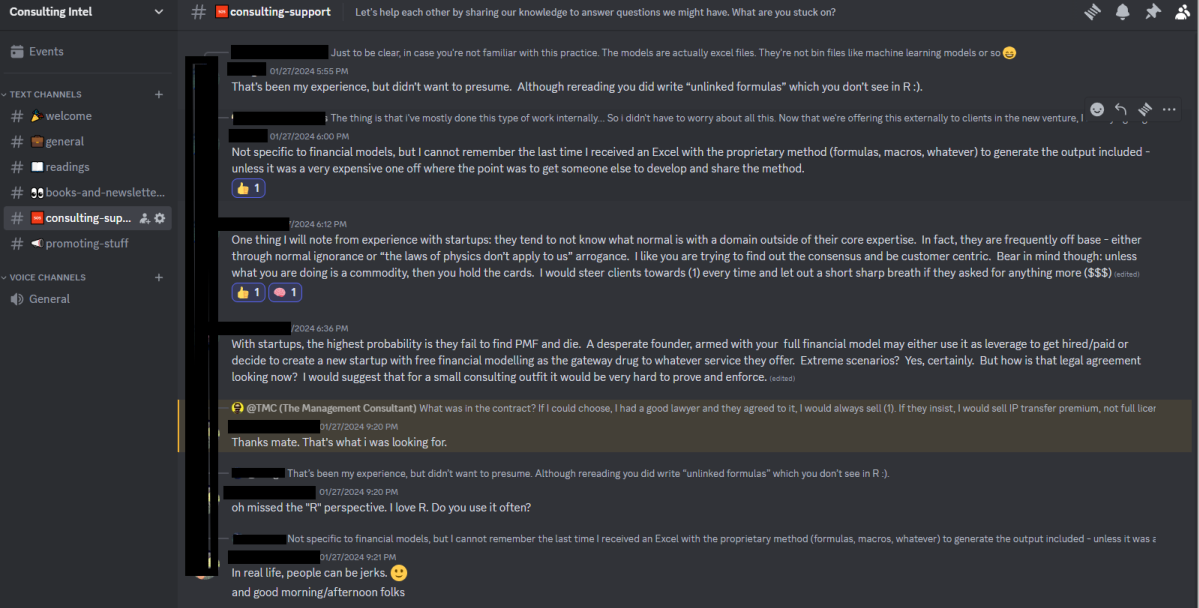A couple of ideas from mythology and Napster on how small narrative shifts create massive perception changes
Strategic reputation building is essential in the modern workplace
Hello to the 3,232 subscribers who read Consulting Intel!
When Odysseus set sail from Troy, he did not expect a decade-long journey home filled with one-eyed giants, seductive sirens and vengeful gods. What’s often forgotten about Odysseus is the PowerPoint deck he prepared for the Trojan Horse pitch meeting.
If you read the same version of the Odyssey that I read, you would remember when Odysseus stands before King Agamemnon and the Greek generals, clicker in hand, about to unveil his master strategy.
“Gentlemen” he begins, “I present to you: Operation Wooden Equine.”
His first slide contains a glaring typo: “The Torjan Horse”
Menelaus snickers, Ajax rolls his eyes and Achilles, that renowned warrior with the vulnerable heel but impeccable spelling, whispers to Patroclus: “Did this man really graduate from Ithaca Business School?”
Odysseus does not double down with “Let me tell you how siege warfare actually works” or “That’s just not how high-performing Greeks operate.”
Instead, he acknowledges the error with a self-deprecating smile.
“My apologies for the typo, gentlemen. Apparently, my reputation for cunning does not extend to my proofreading skills.”
The room laughs and the tension dissolves.
For his next slide, Odysseus does not take sole credit for the wooden horse idea.
“This concept evolved through collaboration” he explains “Epeius will build it, Sinon will convince the Trojans to wheel it inside their walls, and thirty of you brave men will hide within it. Each person’s role is essential.”
By the end of the presentation, Odysseus has built far more than a case for a wooden horse: he reinforced his reputation as someone who can admit mistakes, share credit and make others feel valued during the pursuit of victory.
Ten years later, when Odysseus finally returns to Ithaca, his reputation has preceded him.
He is not just as the man who conceived the Trojan Horse, but a leader worth following, even through a decade of sea monsters, enchantresses, and the occasional typing error.
As you navigate your own odyssey through open-plan seas and corporate Scyllas and Charybdises, remember that your reputation is not built in a single heroic moment, but grain by grain, slide by slide, interaction by interaction (and, preferably, without angering any gods who might delay your journey by ten years).
Reputation is the office’s stock market.
Buy low, sell high, right? Unfortunately, unlike stocks, you can’t just trade your way to a stellar reputation: you have to build it.
Your reputation is like a multi-faceted diamond, reflecting light (or lack thereof) in several directions. One facet might be your technical prowess, another could be your team-player vibe, and yet another could be your knack for client relations.
Self-promotion tends to light up only one facet, your achievements, but leaves the others in the dark. While you are gleaming in one direction, you might be causing shadows elsewhere.
If you are the guy who is constantly talking up his client-revenue-increasing exploits, the partners might love you, but what about your teammates?
They might start thinking you are a self-serving mercenary. The moment you are seen as that guy, the one who sucks up but does not lift others, your collaboration prospects plummet.
This is why you must be strategic: you need to selectively illuminate your successes in a way that also casts a favorable glow on those around you.
Did you manage to fix a complex bug in half of the originally estimated time? Awesome.
🚨 Get 10% OFF LEADERTOOLS using the Consulting Intel discount!
The Leaders Toolkit is a deck of 52 tools, frameworks and mental models to make you a better leader. Each card is highly actionable with zero fluff or jargon.
These tools are used by people working at some of the best run companies in the world such as Amazon, Hubspot and Google. Grab your Leader’s Toolkit at LeaderTools.co
Use code CONSULTANT10 for 10% off.
But maybe the tale you tell is not just about your technical genius: just like Odysseus did in our funky version of the Odyssey, the story has to be about how the whole team came together, the functional consultant, the tester, your developer colleague, each contributing their unique skills to smash expectations.
A story like that makes you look good and paints you as a unifying team player. It recognizes the effort of others, which is fundamental for earning respect from your colleagues.
That is how a small shift in the narrative can lead to a big change in perception.
In the primordial days of digital music, when Napster roamed the earth and dial-up modems screeched like prehistoric beasts, I established myself as the Spotify of 2001 (except, unlike most today’s streaming services, I was profitable from Day 1.)
My business model was elegant in its simplicity: songs downloaded at geological speeds (30-40 minutes per track) were burned onto shiny discs with custom printed (by me) labels, then sold at magnificent markups (precisely 15,000 Italian Liras, the equivalent, at the 2001 exchange rate pre-EUR, of US$7 - let me know in the comments if that was a good price?!) to my fellow students: it was drop-shipping before drop-shipping existed.
The narrative shift I preach about truly manifested then: I was not selling pirated music; I was providing a “white glove curation service.” You didn’t pay for songs: you paid for my exquisite taste (I found out about its importance long before Anu wrote this) and technical wizardry!
The true stroke of genius, I think, was in inventory management.
Each 40-minute download represented a significant time investment in an era when tying up the family phone line could trigger domestic diplomatic incidents. The solution to that problem was to go all in on persuasion.
“You know what would pair perfectly with that Oasis track you requested? This Blur song I coincidentally already have downloaded.”
“Everyone’s putting Smashing Pumpkins on their compilation this week. Total coincidence that it’s sitting right here on my hard drive.”
I was selling narratives: stories about what was cool, what paired well together, what represented good taste. My classmates were not buying tracks they could eventually download themselves but they were buying identity, convenience and, importantly, my carefully constructed reality where certain songs were “must-haves” (specifically, the songs I had already spent half a Sunday downloading).
Was it legal? I don’t think I would have passed the audit, but as a laboratory for developing the persuasive skills that would later serve me in consulting, it was invaluable.
I learned that people don’t buy what you sell.
They buy the story you tell about what you sell, and so when I tell you today that narrative shapes reality, I am not speaking theoretically: I learned it in the trenches of adolescent commerce, one painstakingly downloaded MP3 at a time.
If juggling all this makes your head spin, good: that means you are paying attention. If it were easy, every consultant would be a rock star.
You spent years memorizing industry jargon, cracking operating models, bending hyperscalers to your will yet, somehow, you think understanding people should be instinctive?
No.
Same way you debug a system, you debug human incentives.
The upside is that, once you figure that out, your brain becomes an unfair advantage and your career shifts from slow grind to high-speed elevator.
Practice is all you need, no more simply reading about things (or, as Derek Sivers put it: “If more information was the answer, we’d all be billionaires with six-pack abs”)
Ciao, until next time! 👋
✍ The Management Consultant
PS: If you like this newsletter, I have one huge favor to ask.
Share it around with friends, family and colleagues.
This is the most effective way to support me (…and to keep me motivated to continue writing 😁).
Thank you 👇👇👇
🎯 INTERESTING SH*T
A couple of things I found on the internet that you may like…
Haven’t heard about Moleskine since 2015 when I was working with this German guy who used to go through them like a kid goes through gelato… And today I bumped into this article
“Research as leisure activity”: Celine Nguyen seems to have my same type of disease 😅
👀 JOIN THE DISCORD SERVER
If you like this newsletter, you will love our Discord Server.
In there, you will find a tight-knit community of 180+ management consultants from all over the world discussing real-life challenges, giving each other support and recommending the good stuff to keep our knowledge top notch.






